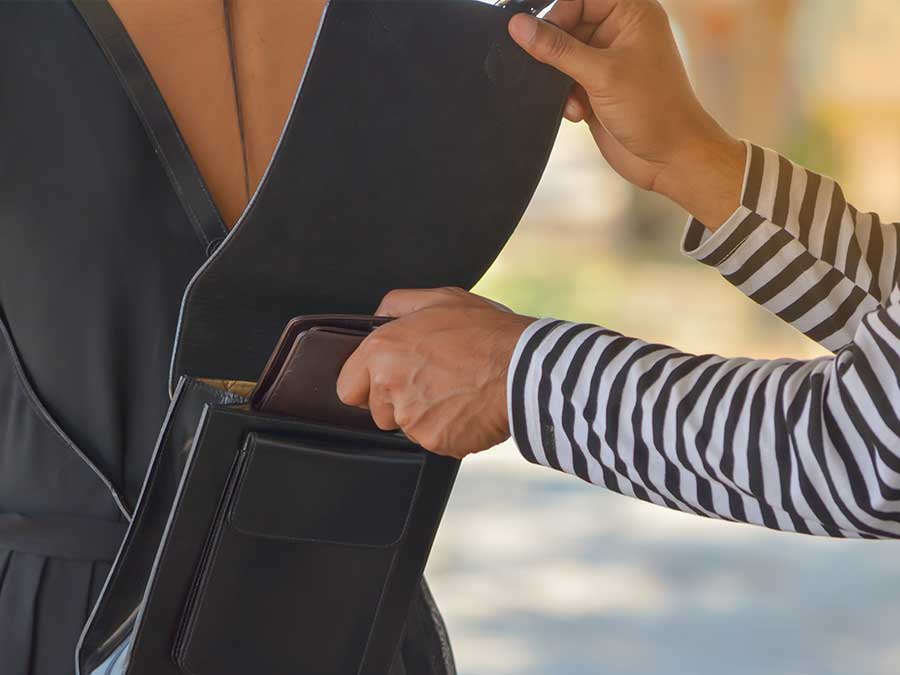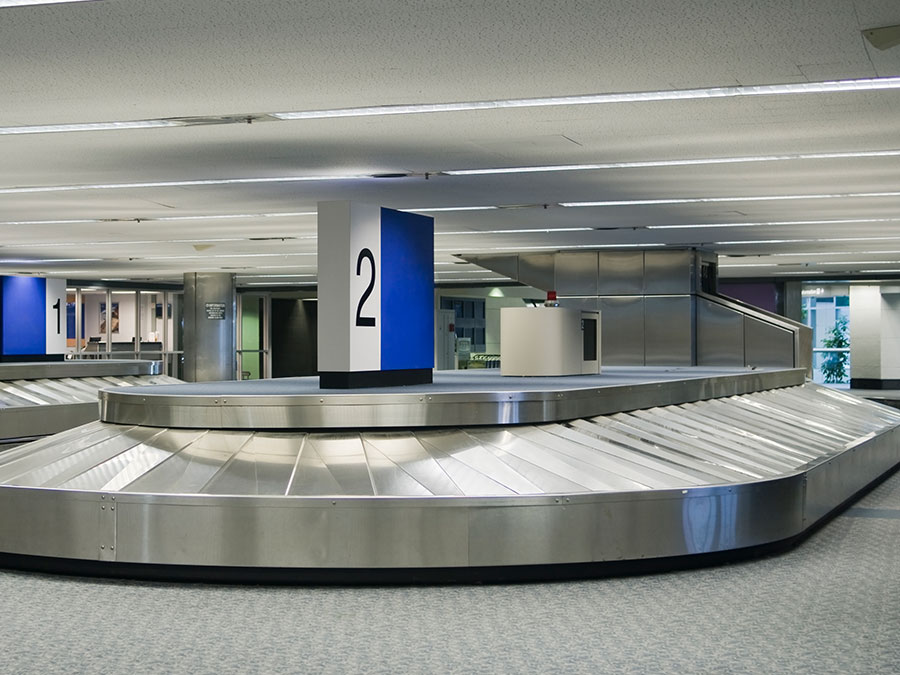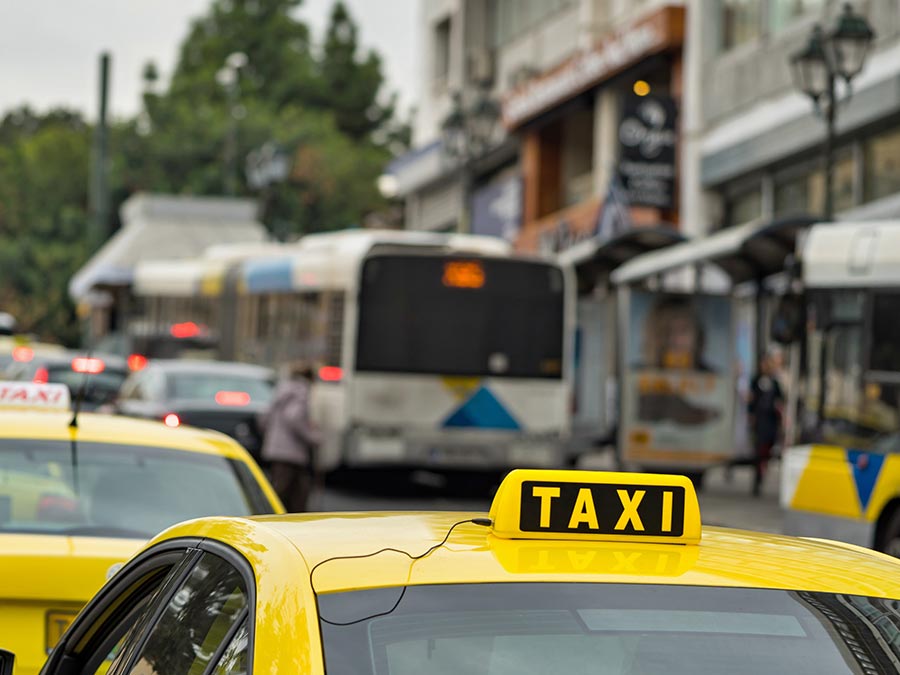
How to avoid theft while travelling
Being robbed on holiday is a sure way to ruin your trip. Losing your passport, credit cards or other important documents, can end your holiday fun very quickly. On the brighter side, most crimes can be avoided if you take a few necessary precautions. We’ve pulled together ten simple steps to help you avoid becoming a victim of theft on your next adventure.
1. Tap and glance
When we’re travelling, we can sometimes be more absent minded than normal due to hurried transport schedules followed by getting ourselves into the relaxing holiday mode. If you’re leaving a hotel or restaurant, or exiting public transport, get into the ‘tap and glance’ habit. Tap your pockets to check you have your wallet and phone. Glance back to where you were sitting to make sure nothing has been left behind. It’s a simple habit that might save you a lot of trouble in the long-run.
2. Stay coherent
Everyone wants to let their hair down and relax on holiday – it’s all part of the experience! But don’t forget the basic safety precautions if you’re going to be drinking whilst travelling. A lot of crime against travellers takes place when the tourist has had one too many, making them vulnerable to theft and assault.
Remember to never accept drinks from a stranger, even if they do seem friendly, and stay close to your group of friends so you can keep an eye on each other. Avoid carrying your passport, large amounts of cash, credit cards or other expensive valuables to bars and clubs. Keep them locked up in your hotel safe and only take what you really need on a night out. The last thing you want is to spend the next morning organizing a replacement passport whilst nursing a hangover!
3. Research where you’re going
Not only the country, but also the village or town you’ll be visiting. Check the travel routes and familiarize yourself with the street names before you leave the hotel. It’s better to have your route to hand rather than pulling out your travel itinerary or Lonely Planet in the middle of the street, so make a note of it on your phone. Do some Googling before you depart to find out what areas are not safe for tourists and whether there are any local scams. Talking to shop keepers and cafe staff is also a great way to find out what to be aware of in the area.
4. Scan and backup everything
Before you pack your bags, take a moment to scan and email copies of your important documents (passports, prescriptions, itinerary) straight into your inbox. Print out a set of your travel documents and leave them with a family member back home in case of an emergency. Having easy access to your travel documents will mean you can download copies if any of the original versions go missing. It’s also much easier to replace a lost or stolen passport if you have a photocopy that proves you owned it.
5. Split your valuables up
Losing all of your valuables when you’re in a foreign country is the ultimate nightmare. What do you do if you’re travelling alone and your wallet is stolen? Avoid falling into that trap by splitting your money between the hotel safe, a bag, a wallet and a secure pocket, so that you don’t lose everything all at once if you get robbed. It’s also wise to keep some emergency money and a credit card locked up in the hotel safe.
6. Avoid bag snatchers
If you’re in a place where there are a lot of mopeds and motorbikes, it’s a good idea to walk on the side of the road where the drivers are facing you. It’s hard for a thief on a bike to grab your handbag whilst they are travelling in the opposite direction to you. If you are walking on a curb, keep your bag close to you on the side of you that faces away from the road. Don’t make yourself an easy target.
7. Don’t flaunt it
As much as you love that designer handbag and gold watch, it might be better left at home when travelling to a foreign country – it just makes you more attractive to thieves. The same goes for your brand new smartphone – if you have to take it, keep it tucked away in a bag or secure pocket when you’re not using it. You could event consider taking a spare or old mobile phone with you on your trip. Don’t flaunt what you’ve got, or you might draw the wrong attention.
8. Blend in
Try and blend in with the locals, if possible, wear plain clothing and avoid the bling! Appear confident and alert in public places (even if you are hopelessly lost!), be discreet when handling money and avoid wearing a camera around your neck when walking around.
9. Decoy wallet
Having a second wallet with a few expired credit cards and a minimal amount of local cash in it is a great contingency plan if you do find yourself victim to theft. Put it in your pocket like a normal wallet and it will become the target for pickpockets instead of your real wallet.
In the event of a mugging or robbery, offer the thief your decoy wallet and they will generally run off happy. The best way to stay safe in the event of a mugging is to just give the perpetrator what they want.
10. Cover your personal belongings
Unfortunately, items can go missing in a variety of situations, whether you’re at the airport or on the beach. We’ve heard all the stories of where tourists are targeted – bags can be snatched from taxis, restaurants and even hotel lobbies.
Before you depart, take photos of any expensive items you pack in your luggage, and keep the receipts safely filed away. If any items are stolen on your trip, this will make it much easier and quicker to process your insurance claim.
If you travel without insurance, you take a huge risk. Always make sure you have adequate cover before you travel, and contact your insurer to find out what is covered, where and under what circumstances.
The content of this article is general and provided for information purposes only. It is not intended to be medical advice. Southern Cross Travel Insurance (SCTI) doesn’t guarantee or warrant the accuracy, completeness or currency of the articles.
This article may contain hyperlinks to other websites owned or operated by third parties, or references to third party products or services. SCTI isn’t responsible for, and makes no recommendation about, the content or accuracy of any third party website, or for the suitability or performance of any product or service. The inclusion of a link in this article doesn’t imply that SCTI endorses the website or third party product/service.





